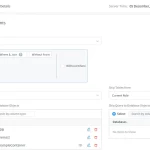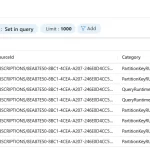
Organizations using MariaDB often manage sensitive datasets such as financial transactions, healthcare records, or personal identifiers. Without clear governance, these assets can be exposed to risks, including unauthorized access, compliance violations, or inconsistent data handling.
Data Governance in MariaDB provides a structured approach to managing security, privacy, and compliance throughout the data lifecycle. It ensures that policies for access, encryption, auditing, and monitoring are applied consistently. At the same time, modern governance requires automation and centralized control to meet evolving frameworks like GDPR, HIPAA, PCI DSS, and SOX.
For deeper understanding of governance best practices, you can review MariaDB Security Documentation, explore the EDM Council DCAM Framework, and check ISO/IEC 38505 Data Governance Standards.
This article explains the native governance capabilities available in MariaDB and shows how DataSunrise enhances them with advanced automation, sensitive data discovery, dynamic data masking, and centralized monitoring.
What is Data Governance?
Data Governance refers to the framework of policies, processes, and technologies that ensure data is managed responsibly throughout its lifecycle. It is not limited to database security — it covers quality, accessibility, compliance, and accountability across an organization.
Key aspects of data governance include:
- Data Quality: Ensuring accuracy, consistency, and completeness of stored information.
- Access Control: Regulating who can view, edit, or delete sensitive records.
- Compliance Alignment: Mapping organizational policies to external regulations such as GDPR or HIPAA.
- Auditability: Maintaining transparent records of data usage and modifications.
- Lifecycle Management: Governing data from creation through archival or deletion.
For MariaDB environments, strong governance reduces the risk of unauthorized access, improves operational efficiency, and helps companies demonstrate compliance during audits. Combined with solutions like DataSunrise, governance becomes an active process supported by automation and compliance reporting.
Native Data Governance in MariaDB
MariaDB provides several built-in capabilities that help organizations govern their data. These features form the foundation but often require additional layers for enterprise-grade compliance.
Fine-Grained Auditing
MariaDB Audit Plugin logs queries, authentication attempts, and schema changes. While this supports governance by providing transparency, native auditing requires manual configuration and may lack real-time monitoring across distributed instances.
Example setup for enabling and logging events:
-- Install the audit plugin
INSTALL SONAME 'server_audit';
-- Turn on auditing globally
SET GLOBAL server_audit_logging = ON;
-- Log connections, queries, and table activity
SET GLOBAL server_audit_events = 'CONNECT,QUERY,TABLE';
-- Review current audit settings
SHOW VARIABLES LIKE 'server_audit%';
This complements a database audit trail by maintaining visibility into query activity and schema changes.
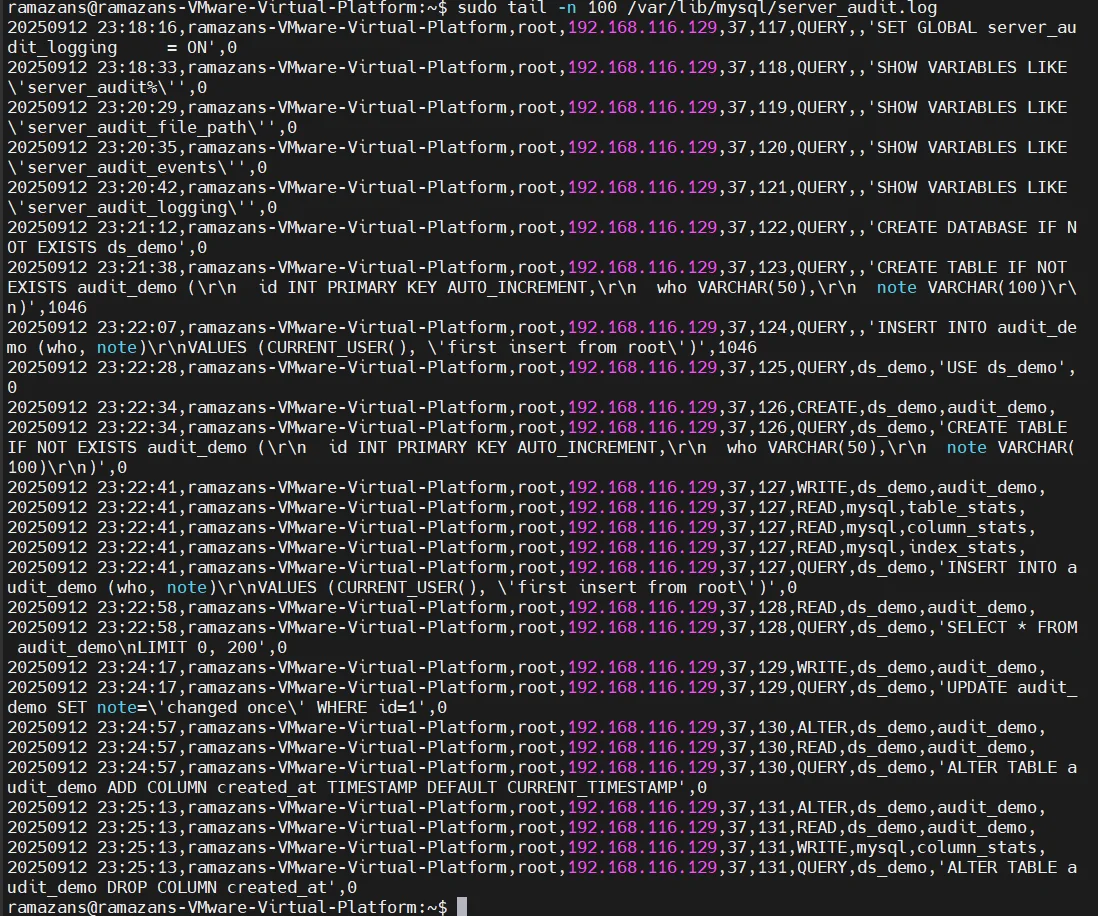
Access Control and Roles
Administrators can assign privileges at the user, schema, table, or column level. Role-based access control (RBAC) simplifies administration by grouping permissions:
-- Create a role for compliance auditors
CREATE ROLE compliance_reader;
-- Grant read-only access on the finance schema
GRANT SELECT ON finance.* TO compliance_reader;
-- Grant role to specific user
GRANT compliance_reader TO 'auditor'@'localhost';
-- Verify that the role has been assigned
SHOW GRANTS FOR 'auditor'@'localhost';
This supports user activity monitoring by ensuring only authorized users can access sensitive schemas such as financial or healthcare records.
Encryption and Data-at-Rest Security
MariaDB supports tablespace encryption and column-level encryption. For example, enabling file key management for data-at-rest protection:
[mariadb]
# Enable the file key management plugin
plugin_load_add = file_key_management
# Path to the encryption key file
file_key_management_filename = /etc/mysql/encryption/keyfile
# Enable tablespace and redo log encryption
innodb_encrypt_tables = ON
innodb_encrypt_log = ON
# Force new tables to be created encrypted
innodb_encrypt_tables = FORCE
Encryption ensures compliance with data security requirements and protects data from unauthorized access at the storage layer.
DataSunrise for MariaDB Governance
While native tools are helpful, enterprise governance requires cross-database visibility, automation, and advanced security. DataSunrise addresses these needs with a proxy-based architecture that applies consistent policies across all MariaDB environments.
Sensitive Data Discovery
DataSunrise scans MariaDB databases for PII, PHI, and financial records using pattern recognition, contextual dictionaries, and OCR for unstructured files. This ensures organizations identify sensitive assets before applying policies.
Beyond detection, the discovery engine classifies information according to regulatory categories, allowing administrators to map datasets directly to GDPR articles, HIPAA clauses, or PCI DSS requirements. Reports highlight where sensitive data resides, who can access it, and which controls are missing, giving teams a clear roadmap for closing compliance gaps. This is a key step in building a complete data inventory.
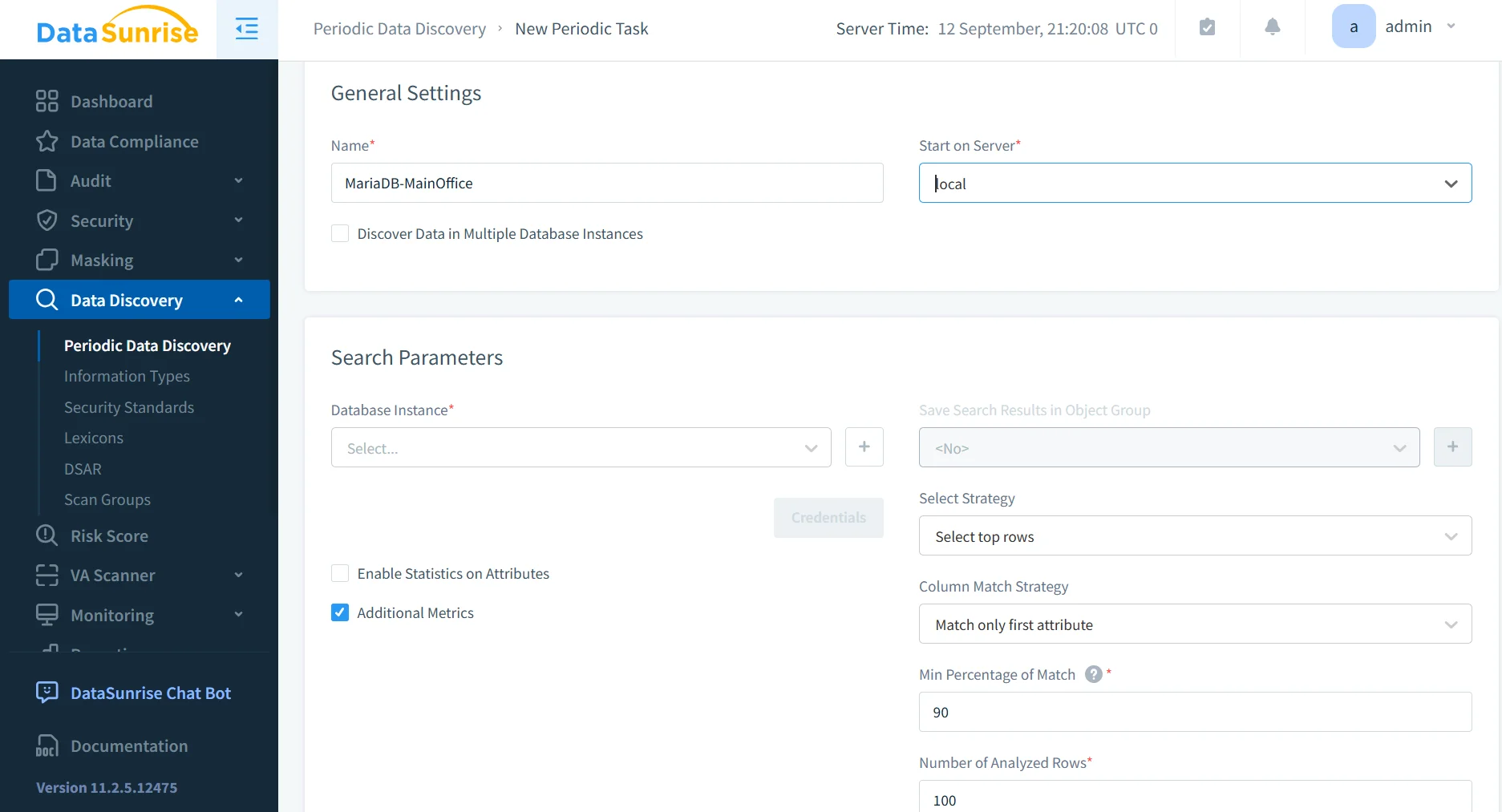
Dynamic Data Masking
Governance is strengthened by masking sensitive data in real time. For example, credit card numbers can be partially hidden from non-privileged users while remaining fully visible to auditors or compliance officers. This allows organizations to maintain usability for day-to-day operations while still protecting personal and financial information from exposure.
DataSunrise supports multiple masking formats — partial, random, or full replacement — depending on the use case. Policies can be applied per user role, application, or even query type. This flexibility ensures that sensitive data remains protected in reporting tools, BI dashboards, and development environments without changing the underlying database structure. This complements static data masking approaches used for non-production environments.
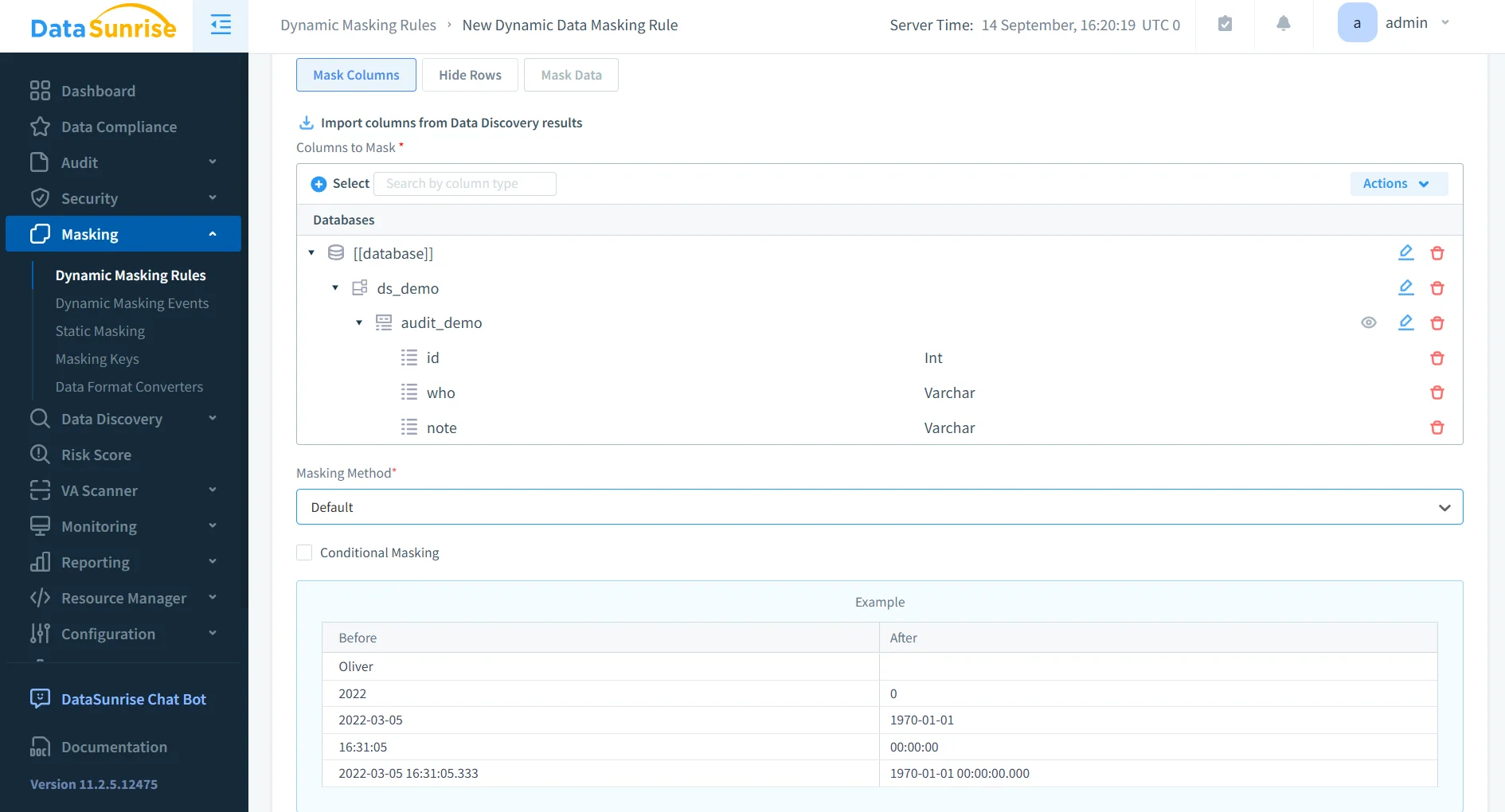
Compliance Autopilot
Governance policies automatically adjust to align with GDPR, HIPAA, PCI DSS, and SOX:
- Real-time enforcement when new tables or roles appear.
- Detection and correction of compliance drift.
- Predefined templates reduce administrative overhead.
- Audit-ready reports simplify external inspections.
In addition, Compliance Autopilot continuously evaluates policy effectiveness and adapts controls when new risks are identified. For instance, if a new column containing sensitive data is created, masking and auditing rules are applied immediately without manual updates. This creates a proactive compliance posture rather than a reactive one and helps align with modern DSPM strategies.
Centralized Monitoring
Instead of monitoring each MariaDB instance separately, DataSunrise provides a unified governance console:
- Consolidated visibility across on-premises and cloud deployments.
- Real-time alerts for unusual queries or mass exports.
- Integration with SIEM platforms for incident response.
The monitoring dashboard correlates logs from multiple MariaDB clusters and other databases, enabling security teams to detect patterns that might go unnoticed in isolated environments. Administrators can drill down into query history, user activity, and masked results, ensuring both granular oversight and strategic visibility across the entire data landscape. This strengthens database activity history analysis and supports compliance-ready forensics.
Business Impact of MariaDB Data Governance
| Benefit | Impact |
|---|---|
| Compliance Assurance | Continuous alignment with regulations avoids costly penalties. |
| Risk Reduction | Sensitive data is masked, encrypted, and monitored to prevent breaches. |
| Operational Efficiency | Centralized management reduces manual overhead and silos. |
| Audit Preparedness | Predefined reports ensure readiness for external inspections. |
| Cost Savings | Automated governance reduces manual work, lowering compliance costs. |
| Faster Incident Response | Centralized alerts and SIEM integration shorten investigation times. |
Conclusion
MariaDB Data Governance requires more than access control and native auditing. While MariaDB provides the foundation, DataSunrise delivers the automation, centralized visibility, and advanced masking needed for full compliance.
By combining MariaDB’s native features with DataSunrise’s governance framework, organizations can protect sensitive assets, enforce consistent policies, and maintain trust in their data.
A strong governance strategy also improves data quality, enhances collaboration between business and IT teams, and enables safer innovation with analytics and AI workloads. With governance and security embedded into the database layer, companies gain the confidence to scale operations and adopt new technologies without exposing themselves to regulatory or reputational risks. This approach ensures readiness not only for today’s audits but also for future challenges in regulatory compliance and data compliance automation.
Protect Your Data with DataSunrise
Secure your data across every layer with DataSunrise. Detect threats in real time with Activity Monitoring, Data Masking, and Database Firewall. Enforce Data Compliance, discover sensitive data, and protect workloads across 50+ supported cloud, on-prem, and AI system data source integrations.
Start protecting your critical data today
